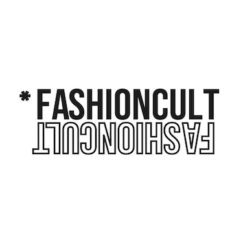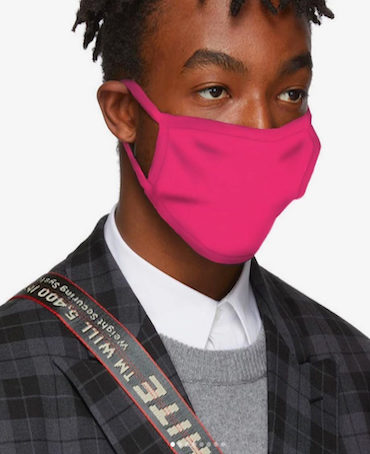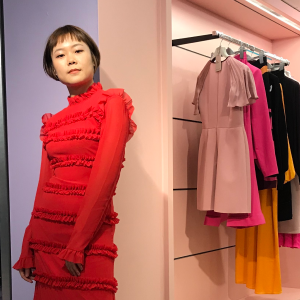
MA Fashion Journalism & Editorial Direction
- Taught by industry Experts
- High Profile Industry Speakers
- Fashion Journalism & Editorial Focus
At a glance
- Duration: 1 year (Full-Time)
- Location: Bedford Square, London
- Overall course fee: £24,950 (UK) | £29,950 (Non-UK)
- Start date: 30 September 2024
Note:
CondéNast College of Fashion & Design is changing its name to Vogue College of Fashion on 30th September 2024. From there on we will refer everywhere officially to the College as Vogue College of Fashion including your final diploma and certificates obtained at the point of graduation with the College post 30th September 2024
Regular Decision Deadline: May 1, 2024
If you are an international student who will need to secure a visa for the UK, you are advised to submit your application before the Regular Decision Deadline.
Our MA Fashion Journalism & Editorial Direction programme stands as a distinctive, industry-centric pathway that opens the doors to an immersive journey through the world of fashion writing, editorial practice, and content creation. Rooted in the wealth of knowledge and expertise held by Condé Nast, this programme offers an invigorating blend of structured academic instruction, hands-on technical workshops, self-driven research, and enlightening masterclasses led by distinguished industry trailblazers. Collectively, these elements weave a tapestry that unravels the creative, commercial, and critical dimensions of fashion media, spanning across print, digital, and experiential platforms.
Situated within the College’s postgraduate Fashion Media portfolio, which also includes master’s programmes in Fashion Styling, Fashion Media Strategy, and Creative Direction for Fashion Media, by pursuing our MA Fashion Journalism & Editorial Direction you will share some taught sessions and projects with your counterparts in other Fashion Media master’s programmes. This collaborative approach ensures that you acquire a holistic and dynamic understanding of the fashion media industries.
At its core, this programme serves as a catalyst for you to emerge as a proficient practitioner within the realm of fashion media. It is meticulously designed to nurture vital transferable skills in communication, critical thinking, reflective analysis, and expert project management, thereby empowering you to innovate and push the boundaries as fashion storytellers, leaders in the media industry, or visionaries in visual communication.
Notably, Condé Nast College boasts unparalleled access to industry luminaries, including the editorial and business teams behind iconic publications such as VOGUE, GQ, Glamour, Tatler, House & Garden, World of Interiors, and WIRED. This unique advantage allows us to combine academic rigour with outstanding industry connections, creating an educational environment like no other.
Condé Nast College of Fashion & Design stands as a steadfast pillar of industry preparedness. The programme’s ultimate aim is to seamlessly bridge the transition from academia to professional employment, seamlessly intertwining theory and academic study with the fabric of industry practice. As a student on this course, you will be immersed in real-world industry scenarios, equipping you to continually elevate your knowledge and understanding, and cultivate new skills to an exemplary level post-graduation. You will also be offered a golden opportunity to engage in a four-week immersive work experience as a vital component of your professional development journey during the programme.
Programme Schedule*
| Induction Week | 30 September 2024 – 04 October 2024 |
| Autumn Term (Term 1) | 07 October 2024 – 13 December 2024 |
| Winter Break | 16 December 2024 – 03 January 2025 |
| Winter Term (term 2) | 06 January 2025 – 14 March 2025 |
| Reading Week | 17 March 2025 – 21 March 2025 |
| Spring Term (Term 3) | 24 March 2025 – 11 April 2025 |
| Spring Break | 14 April 2025 – 25 April 2025 |
| Spring Term (Term 3) | 28 April 2025 – 13 June 2025 |
| Reading Week | 16 June 2025 – 20 June 2025 |
| Summer Term (Term 4) | 23 June 2025 – 29 August 2025 |
| Graduate Exhibition | w/c 15th Sept 2025 TBC |
*All dates subject to change
This MA is an internationally recognised qualification validated by the University of Buckingham and is worth 180 credits at QCF level 7.
 My experience at the college instilled me with the necessary, real-world skills to not only continue my work as an arts writer and as a journalist – but – it also provided me with the skills needed to host and to launch my own sustainable fashion podcast, ‘The (Un)Ethical Consumer’ as well as to launch and to run my own women-led online art and virtual arts initiative based in London, ‘The Artist Workspace Gallery.’ You can read more about Zoe’s work and view her writing here.Zoë Goetzmann, Vogue Summer Intensive, July 2019 & MA Fashion Media Practice - Journalism, 2019-2020
My experience at the college instilled me with the necessary, real-world skills to not only continue my work as an arts writer and as a journalist – but – it also provided me with the skills needed to host and to launch my own sustainable fashion podcast, ‘The (Un)Ethical Consumer’ as well as to launch and to run my own women-led online art and virtual arts initiative based in London, ‘The Artist Workspace Gallery.’ You can read more about Zoe’s work and view her writing here.Zoë Goetzmann, Vogue Summer Intensive, July 2019 & MA Fashion Media Practice - Journalism, 2019-2020
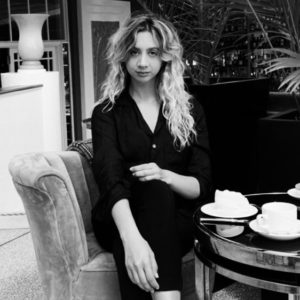 The curriculum at CNC is as academically rigorous as it is industry-facing. People from different sectors of the business visit the college on a weekly basis, so that students are up to date on the most pressing matters within the field. Click here to read more and watch Megan's video.Megan McClelland, MA Fashion Journalism, 2019 - 2020
The curriculum at CNC is as academically rigorous as it is industry-facing. People from different sectors of the business visit the college on a weekly basis, so that students are up to date on the most pressing matters within the field. Click here to read more and watch Megan's video.Megan McClelland, MA Fashion Journalism, 2019 - 2020
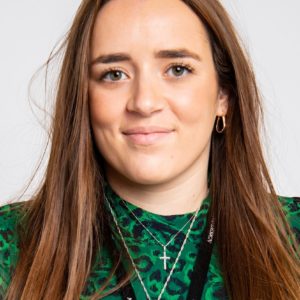 The vibrancy of the course, from its expeditious pace, critique and guidance has allowed me to graduate from the college with a portfolio of work that represents my personality with astute theoretical foundations. Click here to read more.Scarlett Baker, MA Fashion Media Practice - Journalism, 2018-2019
The vibrancy of the course, from its expeditious pace, critique and guidance has allowed me to graduate from the college with a portfolio of work that represents my personality with astute theoretical foundations. Click here to read more.Scarlett Baker, MA Fashion Media Practice - Journalism, 2018-2019
The programme is structured as four 10-week terms. The first three are taught and the final term is dedicated to independent study to complete the final projects and a thesis. The programme structure consists of modules that are shared across all Fashion Media programmes, which focus on research skills and building critical awareness of current issues as well as developments in the fashion, media and luxury industries along with programme-specific modules that enable you to acquire technical and practical skills aligned with your career goals.
Programme Structure
| MA Fashion Journalism & Editorial Direction | ||
| Term 1 Autumn Term |
Fashion Media Futures 30 credits |
Critical Research: understanding Audiences 30 credits |
| Term 2 Winter Term |
Fashion Writing & Criticism 30 credits |
|
| Term 3 Spring Term |
Planning & Managing Editorial Content 30 credits |
Final Masters Project 60 credits |
| Term 4 Summer Term |
||
Modules
The key focus of MA Fashion Journalism & Editorial Direction is on content creation, editing and writing for print and digital platforms. This programme is suitable for talented writers and communicators with a very strong portfolio of work. Modules on the programme are:
Critical Research: Understanding Audiences
The purpose of this module is to provide you with an overview of the range of research methods, approaches and tools that are vital for developing an insight into audiences. The module will cover the philosophy of research, ethics, primary and secondary research methods, and how to analyse, evaluate and disseminate research findings. The module will consider research in a range of contexts relevant to the media industries and enable you to understand the relationship between theory and practice.
Fashion Media Futures
In order for fashion media to stay agile, it is important that companies, brands, publications and indeed individuals are aware of the issues as well as opportunities relevant to the industry now and in the near, as well as distant, future. As part of this, you will be introduced to skills in evaluating societal, technological, political and economic change and how these impact fashion media. In teams consisting of students from different Fashion Media programmes, you will collaboratively respond to emerging trends and create new solutions that capitalise on this.
Fashion Writing & Criticism
This module aims to support you in the development of your written communication skills for a range of media platforms. Whilst the focus of this module is very much on fashion journalism, you will also be introduced to other modes of writing such as criticism, opinion and creative writing for fashion. As part of developing your writing abilities, you will get an opportunity to edit the writings of others, exploring the importance of feedback in the writing process and learning how to respond positively to editorial decisions.
Planning & Managing Editorial Content
This module focuses on the role of the editor in print and digital fashion media. In order to understand this, you will learn about commissioning work and planning the overall content of a print magazine, online publication or digital channel, ensuring the right tone and focus for the brand and audience. The commercial factors that must be considered when managing editorial decisions and how fashion media brands operate in an increasingly global and homogenised sector will be examined also.
Final Masters Project
During this module, you will create a practical outcome aligned with your programme specialism and identified career focus. You will also inevitably approach this as an opportunity to create or enhance a portfolio of work, initiate a live or simulated industry project or take an entrepreneurial approach by creating a project that you might continue to pursue after finishing the degree.
A written thesis will underpin the practical element, allowing you to identify a clear connection between academic theory, scholarly research and genuine industry practice. The aim is to consolidate and enhance previous learning on the programme, providing the opportunity to develop an individual research proposal in any area of interest relevant to the programme’s content.
This project aims to provide you with an opportunity to conduct live research on a topic of interest to you, developing skills in project management and engaging with professional development planning.
To view more detailed Programme Specifications click here.
To view 2023 Programme Handbook click here.
Exceptional ideas and eye-opening perspectives are sought after from individuals interested in learning about the fashion and media industries and having something valuable to contribute to the future of fashion. To be eligible for this course, individuals must be at least 18 years old on 1st September at the start of the academic year in which they intend to begin their studies, and must meet the following entry requirements:
Academic Entry Requirements | UK Applicants
Applicants will need to have achieved an undergraduate degree at 2.2 or above in, ideally, English or humanities-based (e.g. English Literature, Philosophy or Art History), general fashion, media and other related fields. Applicants who have an undergraduate degree in an unrelated subject but are able to demonstrate a commitment to and an understanding of the course subject are encouraged to apply.
Academic Entry Requirements | International Applicants
Applicants will need to have achieved an undergraduate degree, equivalent to a UK 2.2 classification or above in, ideally, English or humanities-based (e.g. English Literature, Philosophy or Art History), general fashion, media and other related fields. Applicants who have an undergraduate degree in an unrelated subject but are able to demonstrate a commitment to and an understanding of the course subject are encouraged to apply.
If international applicants are unsure whether they meet the requirements, they can contact us for clarification. If we do not have a good enough understanding of an international qualification, we may ask an applicant to obtain a Statement of Comparability from UK ENIC
Accreditation of Prior Experiential Learning (APEL)
Exceptional applicants who do not meet the standard entry requirements may still be considered through APEL if they can demonstrate the skills and capacity necessary for academic study at this level. Sometimes experience is as beneficial as what is learnt in a classroom. The admissions and academic teams will consider applications that show exceptional strengths and alternative evidence, which may include:
- Work experience
- Non-accredited courses
- Extensive reading and research
- A brilliant, relevant and credible personal statement
- An exceptionally strong academic or professional reference
- OR a combination of these.
Each application will be considered on its own merit, although we cannot guarantee every applicant an offer.
English Language Requirements
International applicants will require a CEFR Level B2 in a standardised English language test e.g. IELTS Academic for UKVI Level 6.5 with a minimum of 6.0 in each component (reading, writing, listening and speaking), and include the appropriate results certificate with their application:
More information on English language requirements can be found on our FAQs page.
Portfolio
Applicants must submit with their application a digital portfolio containing 10-15 pieces that display creativity and intellectual skills, and must include:
- At least TWO written pieces (800+ words each), one on a relevant fashion or media topic
- At least TWO creative pieces (e.g., photography, videography, styling)
- Applicants are then free to choose further works to complete the total required number of portfolio pieces that best represent their skills, potential, and career aspirations.
We also accept web, blog, or video portfolios; a document with a link to the relevant portfolio format should be submitted as part of the application in place of a PDF portfolio document.
The portfolio should showcase intellectual and creative abilities, originality, and a commitment to fashion, media, and luxury lifestyle. Self-directed projects are welcome where examples of suitable or relevant work do not already exist.
Portfolios should be submitted as one file/body of work, ideally as a PDF with links to any pieces (such as videos) which cannot be displayed within the document, and must be included as a supporting document as part of a course application.
Personal Statement
Applicants are required to submit with their application a 500-word personal statement/statement of purpose that demonstrates their understanding of the focus of the course, the relevance of their background and their reason for applying
What Happens Next?
We will review applications against the entry requirements and asses the examples of work and the personal statement submitted. Please note that any missing supporting documents will cause a delay in an application assessment, and could result in an application rejection.
Those who pass this first application review will be invited to a 20-30 minute online interview to further assess suitability for the course. Please note that, unfortunately, not all applicants will be invited to attend an interview.
When reviewing an application and during an interview, we are looking for applicants to demonstrate their potential and current ability in the following areas:
- Demonstration of a strong personal identity
- The potential to benefit from the course
- Excellent communication skills
- Evidence of motivation and commitment
A final outcome decision will be sent to applicants within 5 working days following an interview.
How to Apply
UK and Non-UK applicants should apply directly to the College using the Apply button on this page. All applicants MUST ensure that their application contains all supporting evidence before it is submitted:
- Copy of passport
- Copies of academic transcript(s) / certificate(s) – (or partial transcript / predicted grades if studies are not yet complete)
- Suitable standardised English test results certificate (Non-UK applicants only)
- Portfolio
- Personal Statement
For further information or any queries regarding entry requirements or admissions, please contact the Admissions Office.
UK & Non-UK Student Tuition Fee
£24,950 (UK) | £29,950 (Non-UK) total course fee.
Deposit Fee – Confirming a Place
In order to confirm and secure a place on this course, applicants holding an offer from us must pay a non-refundable deposit of £3,000.00. Offers must be accepted, with the deposit payment made, within 2 weeks of the offer letter date.
Paying Tuition Fees
Once a place has been accepted and secured with a deposit, students will be required to settle their relevant tuition fees by 15th August in advance of the course start date. International students are required to pay their first instalment from 15th March in order to obtain a CAS for a Student Visa application – this instalment will be due immediately for offers accepted between 15th March and 15th August by international students.
Please note that international students will be required by UKVI to evidence the full course fee amount is accessible to them (in addition to other amounts) before a Student Visa is granted. For more information please see our International Students page, including visa requirements.
All students can request an instalment plan. The total course fee (less the deposit amount) will be payable over 4 termly instalments under this arrangement. Full details and schedule in our Terms and Conditions.
Payment Method
All fees must be paid through FlyWire. FlyWire facilitates credit card, debit card and bank transfer payments. Other local payment methods may also be available in some territories.
Student Loans & Finance
UK students do not currently have access to any loans or grants from Student Loans Company (SLC)
Non-UK students generally do not currently have access to any government student loan schemes or programmes, but this may differ in some countries and may be worth researching in their locations.
Bursaries & Alternative Funding
There are no bursaries available for this course. Students are welcome to explore alternative third-party bursary or scholarship programmes that may be available to them in their locations, such as the Chevening Scholarship.
Condé Nast College of Fashion & Design is proud to work with Chevening, the UK government’s global scholarship programme, funded by the Foreign and Commonwealth Office (FCO) and partner organisations. More details here.
Additional Course Costs
There is an optional study trip abroad that is not covered by the course fee. This takes place in spring and further information is provided at the outset of the course.
For more information visit Terms and Conditions
Alumni Discount
Condé Nast College of Fashion & Design offers course fee reduction to our alumni. Please refer to Alumni Page for more details.
Living Costs
For information on studying in London and what this could cost, please visit our Living in London webpage.
For information on accommodation while studying at the Condé Nast College, please visit our Accommodation webpage.
We are dedicated to empowering our students to excel in the fashion world. We recognise that a thriving career in this dynamic field requires more than just academic knowledge; it demands practical skills, guidance, and opportunities. Throughout your educational journey with us, we will provide an array of career support options tailored to your needs.
This programme contains modules, experiences and opportunities meticulously designed to equip you with the essential skills, knowledge and practice crucial for a successful fashion career, from personal development to professional practice.
Fashion media professionals now move seamlessly between roles at magazines and positions with major fashion brands and retailers, making the focus of the MA Fashion Journalism & Editorial Direction relevant to an increasingly broad range of job opportunities. Within fashion media in general and journalism specifically, the course is suitable for those keen to pursue the following careers:
- Editors
- Writers
- Journalists
- Content creators
During the course, students will examine the roles outlined in magazine mastheads and the increasing roles in digital media.
Within the course content, there will be many career and professional development elements and activities available to you, including:
- Alumni Career panel during the induction week
- Multiple career focussed workshops until your final term
- Careers Day at the end of the course
You will also have access to our Career Services including, but not limited to:
- Strengths testing
- CV & Cover Letter Editing
- Mock Interviews
- Optional 1-2-1 tutorial with our Career Consultant
Previous students graduating from our higher education programmes have gone on to work at: Condé Nast, Vogue, Glamour, Aisle 8, Net-A-Porter, Harvey Nichols, L’Oréal, Hayley Menzies, Grazia, HanSpringett LTD (AKA H-Lans), GQ, Harper’s Bazaar Arabia, WGSN, TikTok, Tatler, Louis Vuitton, The Times and many more.
For more information on careers, please visit our Careers in Fashion webpage.
Our Campus
Condé Nast College is situated in a historic building at Bedford Square, in Central London.
The area was built between 1775 and 1783 and is one of the best preserved set pieces of Georgian architecture in London. The square takes its name from the main title of the Russell family, the Dukes of Bedford, who owned much of the land in what is now Bloomsbury. Bedford Square is in the heart of Bloomsbury, an exciting area for academia and the arts; originally made famous by Virginia Woolf and the Bloomsbury Set.
The College is a short walk from the headquarters of Condé Nast, which our students visit as part of their exposure to the professional world.
Who Teaches at the Condé Nast College of Fashion & Design?
During your course, you will be taught by a range of our academic staff as well as Industry Guests and Visiting Lecturers. Previous industry speakers have included Edward Enninful, Victoria Beckham, Nicholas Coleridge, Natalia Gamero del Castillo, Anna Dello Russo, Adwoa Aboah, Miles Aldridge, Bella Freud, Sarah Harris, Tommy Hilfiger, Anya Hindmarch, Henry Holland, Caroline Issa, Lulu Kennedy, Yasmin Le Bon, Natalie Massenet, Tamara Mellon, Suzy Menkes, Roland Mouret, Kate Phelan, Matthew Williamson and many more.
Building Accessibility Notice
Condé Nast College is located in a historic Georgian building at Bedford Square in Central London. Our campus comprises a Grade I listed building dating to the late 18th Century which is currently not fully accessible to wheelchair users. We are committed to improving the accessibility of our premises, and we appreciate your patience and understanding while we work toward this important goal. Some teaching activities may take place at other venues in central London, which have varying levels of accessibility. If you have specific questions about the accessibility of our campus, either as a visitor or prospective student, please do not hesitate to contact us at dione.hyland@condenastcollege.ac.uk
Course Leader

Johannes Reponen
Johannes Reponen is a scholar, critic and consultant who specialises in communication, media and writing.
Angela Esposito
MA Fashion Media Practice
I graduated in (BA) Fashion Culture and Techniques in Italy, then in (MA) Fashion Media Practice: Fashion Journalism.
View My Work